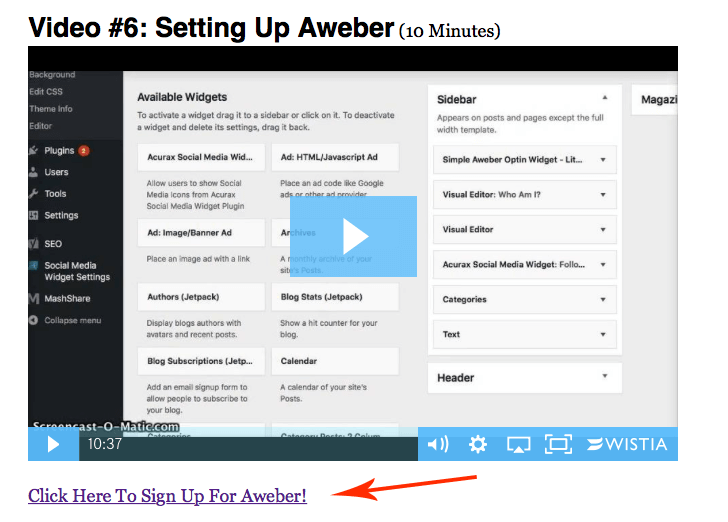5 Ways to Improve Customer Experience and Make it Your Strongest Marketing Tool

This is a guest post written by Raul Harman.
Digital marketing covers a wide array of tools and methods we use to drive business growth and long-term success. But for all the tools you’re using and the talented marketers under your wings, there is no denying that customer experience is the ultimate way to gauge a brand’s performance. How so? Well, simply put, the customer is always right, and if your CX metrics are underperforming, you can bet that your entire brand will suffer as a result.
This is why improving your customers’ experience should be one of your top priorities, especially if you are to unlock the true potential of your digital marketing strategy, your sales and support, and your brand as a whole. Now that you know why it matters, let’s take a look at the best ways to enhance CX and make it the strongest marketing tool in your arsenal.
Asking for customer feedback
The first and most obvious way to improve CX over the long term is to gather as much feedback about your company as possible. This feedback should encompass all aspects of your business, including:
- The customer’s experience on your site
- Their experience on social media
- Their experience in your store or office
- The customer’s experience with your products and services
- The customer’s experience with your brand and marketing
- Their experience with every touchpoint they have with your brand
There is a lot of data to pull here, and the more feedback you ask them to give, the more valuable information will you be able to feed into your CX strategy. You can gather valuable feedback by:
- Monitoring website KPIs and metrics
- Sending out surveys via email and social media
- Offering quick pop-up questionnaires on your site
- Incentivizing feedback with a quick rating system
- Calling customers to ask for a more elaborate feedback
- Inspiring them to leave testimonials and reviews
- Asking your online audience to for honest user-generated content
Providing a seamless website experience
Your website is your most valuable asset in the online world. You can’t expect your visitors and customers to be satisfied with your brand if your website is underperforming in any way, which is one of the reasons why many online ventures ultimately fail. In other words, boosting the usability and performance of your site is paramount to long-term success nowadays.
Ideally, your website should run smoothly and load quickly, and it should be functional: meaning that you should integrate features like a search bar, filters, and a sitemap to make browsing seamless. You also need to optimize it for mobile viewing to rank higher and appeal to a wider audience.
However, this is not enough to improve CX across the board. Your website needs substance as well, meaning that you need to provide your customers with amazing storytelling, captivating messages, and impeccable branding. Remember to invest in visuals and combine various types of content to keep the customer engaged throughout their journey.
Focusing heavily on providing stellar support
One of the most important, if not the most important, elements of CX is providing stellar support to your customers. Nowadays, customers want and need to communicate with their favorite brands on a regular basis, and they want to do it on their own terms. You cannot force them to write you an email if they want to call you, nor will you be able to get them on the phone if they want to shoot you a message.
This is why it’s important to unify your communications and boost your support strategy by integrating a cloud-based platform like VoIP. Some of the leading hosted VoIP providers offer low-cost phone calls, video and audio conferencing, messaging and mobile apps, as well as various other communication tools to help you interact with customers in real time. However, one of the most important features of VoIP is its integrated call analytics tool, which you can use to extract valuable data and use it to fuel your CX strategy.
Emphasizing customer safety on your site
Another important element of customer satisfaction which you can use to enhance their overall experience is to simply emphasize the safety and security of your website. In a world filled with scammers and hackers trying to steal sensitive data, customers need to know that their information is safe with your brand.
Be sure to focus on improving the security of your blog, your Ecommerce store, and your entire digital presence by migrating to the cloud and integrating advanced cybersecurity measures. What’s more, make sure that your customers know it, and position security badges strategically on your site to improve brand trust, loyalty, and the customer’s experience.
Ensuring brand consistency across all channels
Lastly, remember that your customers want a unified, seamless, and consistent experience across all touchpoints. Your brand’s personality and tone of voice must not be different depending on the platform they’re using, or you’d risk alienating them for good.
Make sure to project the same brand image across the online and offline worlds, including your site, social media, other authority websites, forums, online ads and offline ads, communication and support, and beyond. This will ensure brand consistency that will further build trust in your brand.
Wrapping up
Customer experience can be the strongest marketing tool in your arsenal, but you need to know how to improve it and use it to your advantage. With these tips in mind, go ahead and build a more powerful CX strategy that will take your business forward in the years to come.

Author Bio:
My name is Raul and I am editor in chief at Technivorz blog. I have a lot to say about innovations in all aspects of digital technology and online marketing. Please take a minute to connect with me on Twitter and Facebook.














 Robyn Howard is a proud video enthusiast and also content manager at VideoRemix.io. She works with a devoted team of techies to help people create, edit, personalize, and publish production-quality video campaigns to engage their audience. Clients can use
Robyn Howard is a proud video enthusiast and also content manager at VideoRemix.io. She works with a devoted team of techies to help people create, edit, personalize, and publish production-quality video campaigns to engage their audience. Clients can use 





